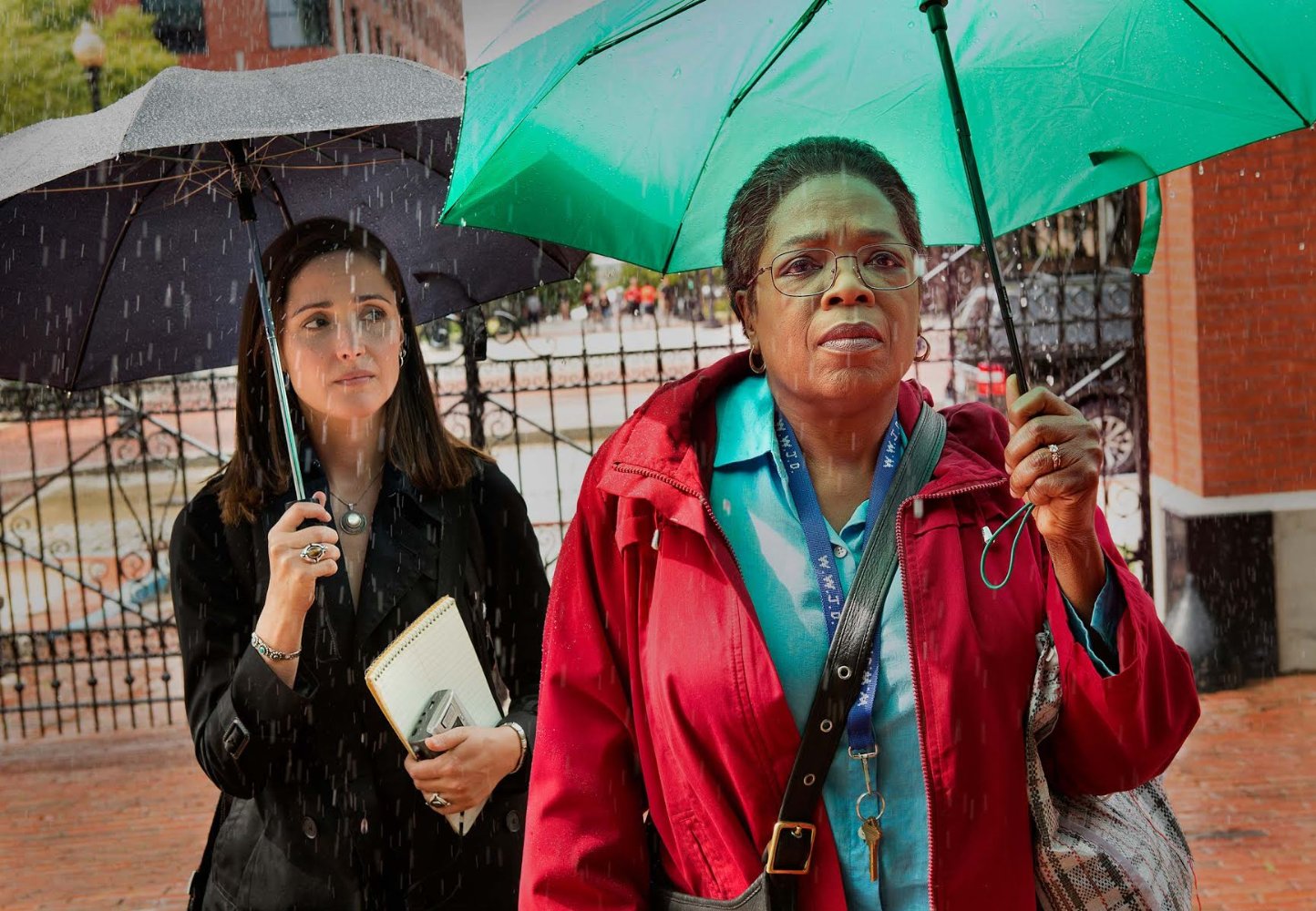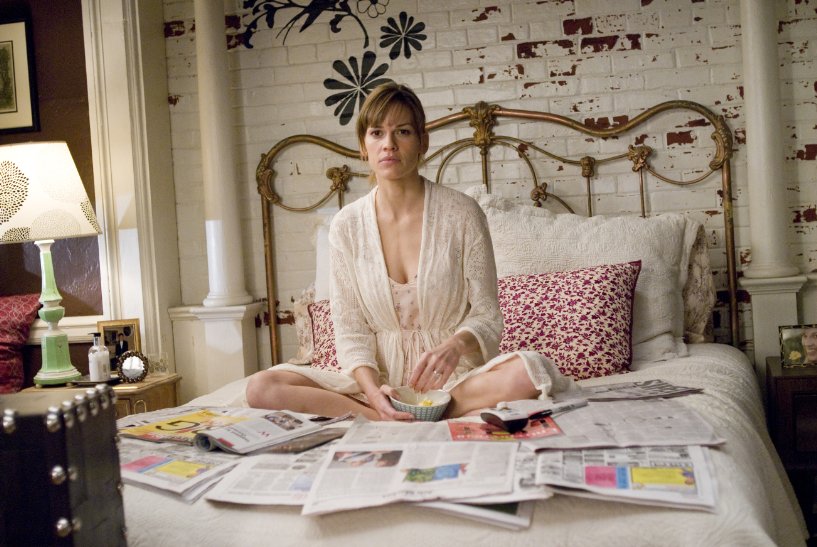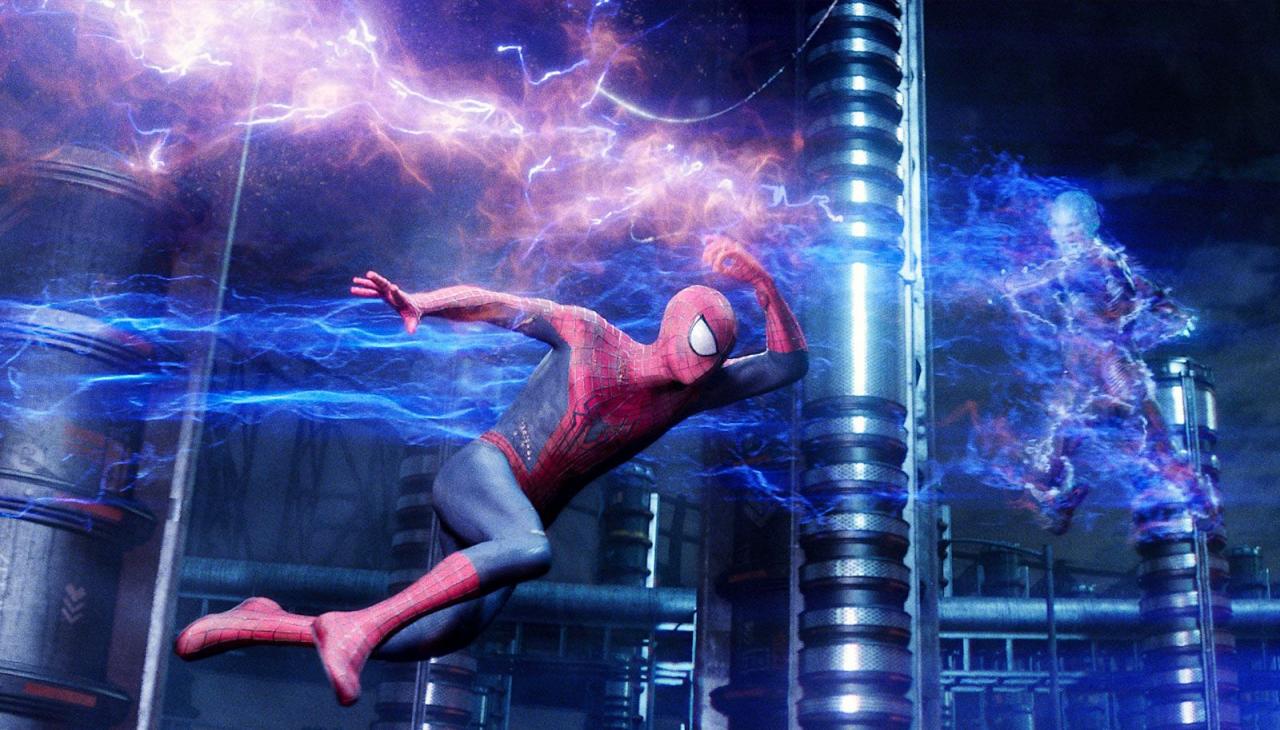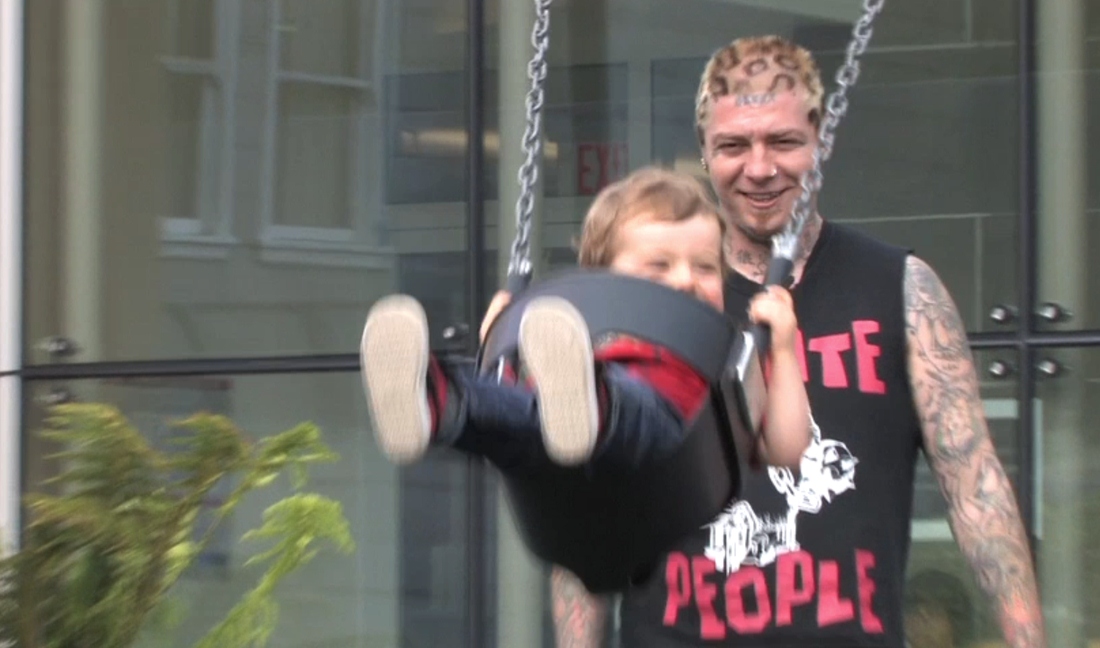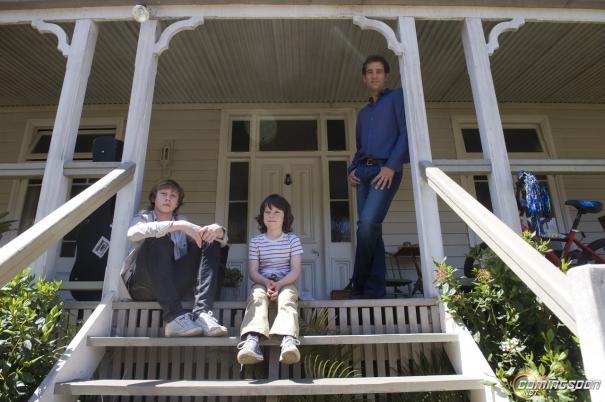
(2021) Drama (Shout!) Mark Duplass, Natalie Morales, Desean Terry, Christine Quesada. Directed by Natalie Morales
Friendships can develop in unlikely places, and in unlikely ways. In this modern age of communication, we don’t even need to live in the same hemisphere to develop a deep and meaningful relationship with someone else. That can be a double-edged sword.
Cariño (Morales) is a Spanish teacher living in Costa Rica when she dials into a Zoom meeting with a new student. That turns out to be middle aged Adam (Duplass), who received 100 lessons in Spanish as a birthday gift from his husband Will (Terry). Adam and Will live in a rambling mansion in the Oakland hills and fairly drip with wealth and privilege. Cariño lives in an area of much natural beauty that she likes to show off to her students. As it turns out, Adam already speaks Spanish fairly fluently, but had mentioned offhandedly that he was rusty and needed an immersion course to get him back to fluency. Will pounced on that tidbit of information, as married partners will, and voila.
But the situation turns on a dime when Adam informs her of a personal tragedy. He is numb, bewildered and somewhat lost. Cariño, who barely knows him, is nevertheless kind, sympathetic and comforting and Adam begins to feel a real friendship with her.
As the lessons progress, we see that the two people from apparently disparate backgrounds begin to bond, and despite the reluctance of Cariño to let her walls down, the teacher and student become friends. But isn’t it true that some boundaries shouldn’t be crossed? Not in this case.
I think it’s safe to say that this movie is long on charm and short on production values; it’s essentially filmed as a series of Zoom calls and while the two stars are almost always onscreen together, they’re never physically in the same place until the very final scene. Even so, there’s a great deal of chemistry between the two. Both Morales and Duplass have a great deal of onscreen charm and charisma, and both utilize both of those traits to the hilt here. Duplass, in particular, delivers a performance that is often raw and emotional, although Morales gets a few juicy scenes of her own. However, the one thing that is the center of the film – the friendship between the two – is believable every second that it develops.
There is a bit of fantasy indulgence here – I wonder if the movie would have fared a little bit better had Adam been not so wealthy, although two years’ worth of weekly Spanish lessons might be an indulgence only a wealthy person would consider. It’s just that the ending felt a little contrived because of it, and might have been a bit more realistic had the writers not been given too easy of an out.
One thing I really liked about the movie is that you never know where it’s going next. Too often, movies follow familiar formulae and tread well-travelled trails. Not so this one; even though there are a few tropes here and there, they feel like they belong rather than they were inserted for convenience or as cinematic shorthand. You do have to work for this one a little bit, but in a pleasant way and that is certainly not often the case, even for a lot of independent films.
Most of the movie is in Spanish, although it is amusing to note that the subtitles also reflect Adam’s grammatical errors as well. And while the movie is about the beginnings of an unlikely friendship, there is also dealing with loss and disappointment, but in the grand tradition of movies dealing with grief, it ends up being a life-affirming experience.
Some might be suffering from Zoom fatigue and may not necessarily want to spend an hour and a half watching someone else’s Zoom conversation, but that would be a shame because this is a deeply emotional movie that delivers all the feels, something all of us can use lately. Also, as an additional bonus, it doesn’t mention COVID at all, although clearly the pandemic had a lot to do with the way this was filmed. While it’s playing exclusively in theaters at the moment, it will doubtlessly be available to stream soon. And although I find myself writing a closing sentence I never thought I’d ever use, you may want to wait for it to hit a streaming or VOD service – if ever a movie was meant to be seen on a laptop, it’s this one.
REASONS TO SEE: Duplass and Morales are both incredibly charming and deliver powerful performances. You never know where the movie is going. Like most films about loss, it’s very life-affirming.
REASONS TO AVOID: People might be a little burned out by communicating via Zoom.
FAMILY VALUES: There is some brief mild profanity and adult themes.
TRIVIAL PURSUIT: This is Morales’ first feature film as a director; she also directed several episodes of Duplass’ anthology TV series Room 104.
CRITICAL MASS: As of 9/13/2021: Rotten Tomatoes: 96% positive reviews; Metacritic: 68/100.
COMPARISON SHOPPING: Italian for Beginners
FINAL RATING: 8/10
NEXT: Azor



